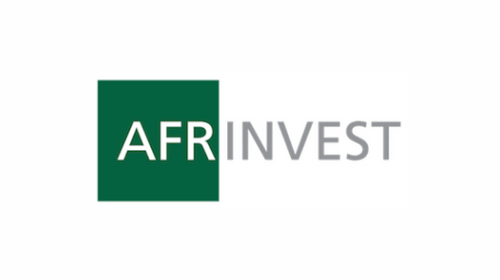Investment banking firm, Afrinvest, has called on Nigeria’s Fast-Moving Consumer Goods companies to prioritise cost optimisation strategies, particularly through scaling up Backwards Integration Projects, to sustain profitability as macroeconomic conditions show signs of improvement.
Afrinvest made this call in its 2025 Consumer Goods Sector Report titled ‘Recovery, Realignment and Resurgence’, authored by Team Lead, Abiodun Keripe, alongside analysts Nathanael Disu and Ibukunoluwa Ajala.
The report assessed that easing inflation and foreign exchange stability had led to a more optimistic near-term outlook for the FMCG sector.
It noted that developments in the FMCG industry underscore a sector in transition, marked by robust gains in key sub-sectors, lingering vulnerabilities in others, and an overarching push toward resilience and self-sufficiency in the face of evolving macroeconomic dynamics.
It noted, “On the back of this, we upgrade our near-term outlook for the industry to be optimistic on the back of evolving macroeconomic dynamics, FX stability and lower inflationary pressures.”
The firm noted that although the food, beverage, and tobacco segment of the Gross Domestic Product grew by 2.1 per cent in 2024, down from 3.0 per cent in 2023, there were early signs of a potential rebound.
Afrinvest said, “This marks the third consecutive annual decline in the industry’s contribution to GDP,” linking the drop to “persistent headwinds on both the demand side (consumer spending) and the supply side (input costs and production constraints).”
It, however, observed improving fundamentals in early 2025, saying: “There are silver linings that industry players can leverage to deliver improved earnings performance.”
Afrinvest reported that revenue across its coverage universe, excluding Flour Mills, which delisted mid-2024, rose by 69.2 per cent year-on-year to N3.8tn.
Despite pressures from raw material costs and FX volatility, the sector trimmed its pre-tax and post-tax losses by 24.4 per cent and 60.7 per cent, respectively, with post-tax losses dropping to N41.3bn. “This signals the first sign of traction after the prior year’s turbulence,” the report noted.
The firm attributed the recovery to “improved OPEX management and a strategic pivot away from avoidable FX-tied obligations” recorded in Q1 2025.
Afrinvest also pointed to transformative developments in the sector. It highlighted a landmark $1bn investment by a Chinese firm in April 2025 to establish a large-scale sugarcane plantation and processing plant, describing it as “a major boost to Nigeria’s long-standing ambition for sugar self-sufficiency.” The project will begin with an annual processing capacity of 100,000 metric tonnes, targeting 1 million MT long term.
The report revealed that Nigeria’s sugar industry posted a revenue growth of 62.3 per cent year-on-year to N1.4tn in 2024. It added, “BUA Foods unseated Dangote Sugar to emerge as the new market leader, propelled by its aggressive business-to-consumer growth strategy.”
In the cocoa-based Food and Beverage segment, Afrinvest noted that global supply disruptions in Ghana and Côte d’Ivoire have created export opportunities for Nigeria. It projected local cocoa production to rise to 500,000 tonnes under the Federal Government’s renewed focus.
“Nestlé continues to dominate the sub-sector, with its food/nutrition and beverage units accounting for 81.2 per cent of total revenue in 2024,” the firm stated.
However, the Home and Personal Care segment remains fragile. Afrinvest reported that PZ Cussons is exploring exit strategies after Unilever’s operational downsizing, citing the discretionary nature of products and weak consumer confidence.
It also flagged lingering issues in flour milling, saying: “The 2024/25 marketing year saw wheat production stagnate at 120,000MT,” attributing the shortfall to disruptions in Borno State, which produces 67 per cent of national output.
Despite these challenges, the industry posted 115.2 per cent year-on-year revenue growth to N687.5bn. Afrinvest said BUA Foods maintained dominance with 78.8 per cent of the market in the dual sugar-flour sub-sectors.
Summarising its analysis, Afrinvest said: “Nigeria’s consumer goods sector is experiencing a wave of transformation, driven by bold investments, strategic market shifts, and evolving global supply dynamics.”
It concluded that companies need to “implement strategies that optimise costs (particularly scaling up Backwards Integration Projects) and adapt to the ever-changing consumer preferences to stay competitive and profitable.”















